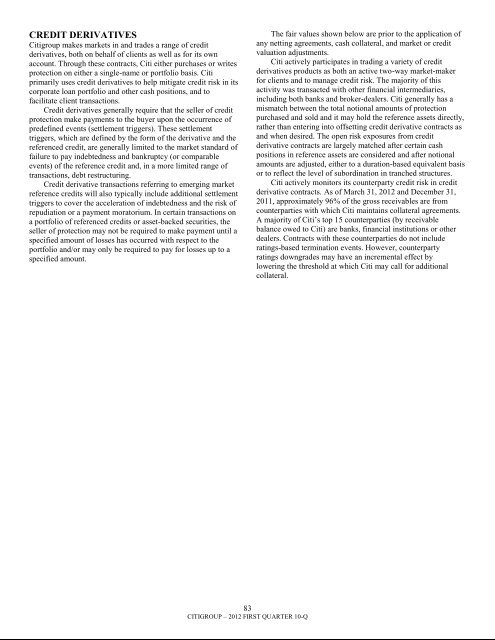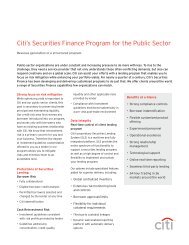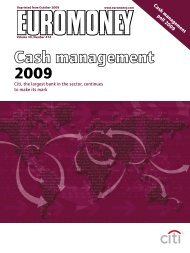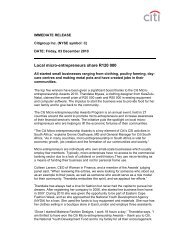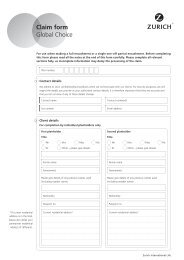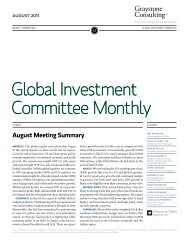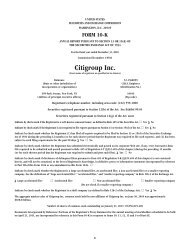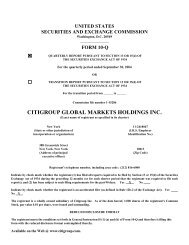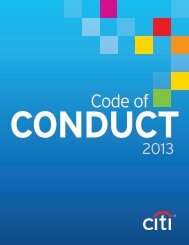7.3 billion - Citigroup
7.3 billion - Citigroup
7.3 billion - Citigroup
You also want an ePaper? Increase the reach of your titles
YUMPU automatically turns print PDFs into web optimized ePapers that Google loves.
CREDIT DERIVATIVES<strong>Citigroup</strong> makes markets in and trades a range of creditderivatives, both on behalf of clients as well as for its ownaccount. Through these contracts, Citi either purchases or writesprotection on either a single-name or portfolio basis. Citiprimarily uses credit derivatives to help mitigate credit risk in itscorporate loan portfolio and other cash positions, and tofacilitate client transactions.Credit derivatives generally require that the seller of creditprotection make payments to the buyer upon the occurrence ofpredefined events (settlement triggers). These settlementtriggers, which are defined by the form of the derivative and thereferenced credit, are generally limited to the market standard offailure to pay indebtedness and bankruptcy (or comparableevents) of the reference credit and, in a more limited range oftransactions, debt restructuring.Credit derivative transactions referring to emerging marketreference credits will also typically include additional settlementtriggers to cover the acceleration of indebtedness and the risk ofrepudiation or a payment moratorium. In certain transactions ona portfolio of referenced credits or asset-backed securities, theseller of protection may not be required to make payment until aspecified amount of losses has occurred with respect to theportfolio and/or may only be required to pay for losses up to aspecified amount.The fair values shown below are prior to the application ofany netting agreements, cash collateral, and market or creditvaluation adjustments.Citi actively participates in trading a variety of creditderivatives products as both an active two-way market-makerfor clients and to manage credit risk. The majority of thisactivity was transacted with other financial intermediaries,including both banks and broker-dealers. Citi generally has amismatch between the total notional amounts of protectionpurchased and sold and it may hold the reference assets directly,rather than entering into offsetting credit derivative contracts asand when desired. The open risk exposures from creditderivative contracts are largely matched after certain cashpositions in reference assets are considered and after notionalamounts are adjusted, either to a duration-based equivalent basisor to reflect the level of subordination in tranched structures.Citi actively monitors its counterparty credit risk in creditderivative contracts. As of March 31, 2012 and December 31,2011, approximately 96% of the gross receivables are fromcounterparties with which Citi maintains collateral agreements.A majority of Citi‘s top 15 counterparties (by receivablebalance owed to Citi) are banks, financial institutions or otherdealers. Contracts with these counterparties do not includeratings-based termination events. However, counterpartyratings downgrades may have an incremental effect bylowering the threshold at which Citi may call for additionalcollateral.83CITIGROUP – 2012 FIRST QUARTER 10-Q


